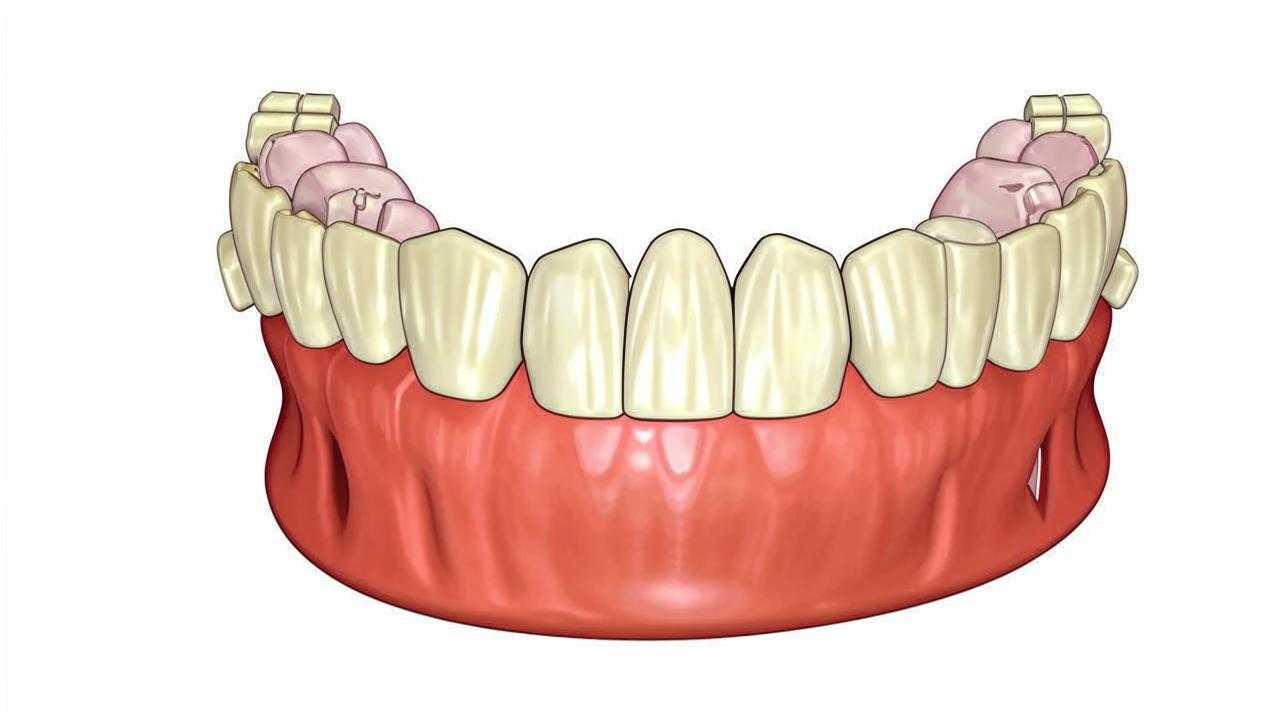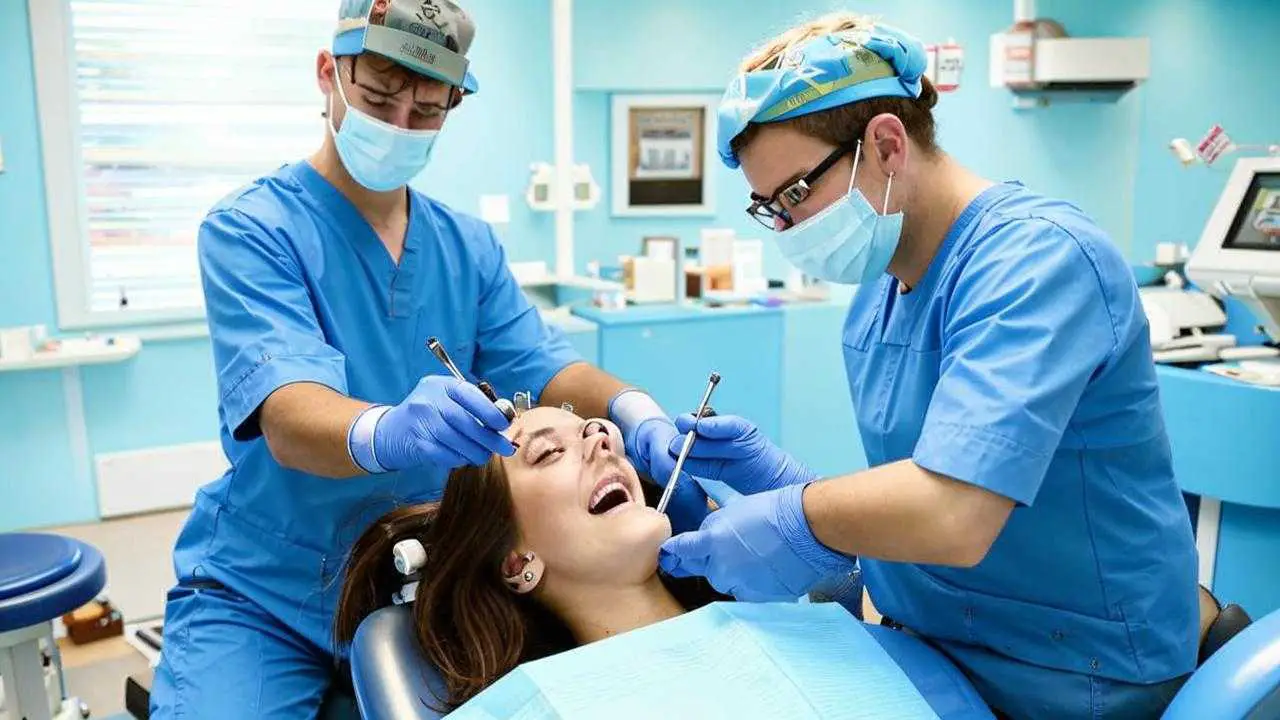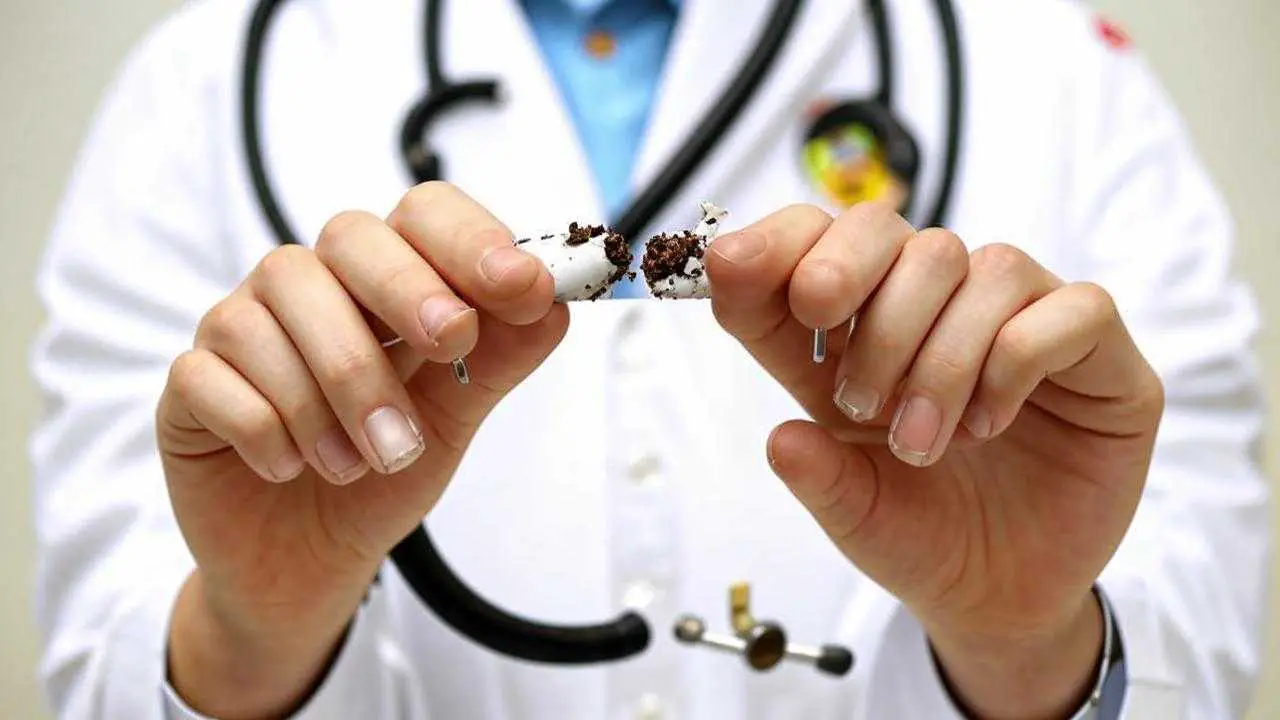A fogbeültetés a kihúzott fog gyökerének pótlása biokompatibilis fémrúddal, amely összeolvad az élő csontszövettel. Az implantátum felső részét koronával vagy híddal protézisbe helyezik, amely esztétikát és funkcionalitást biztosít. Vannak, akik elutasítják a műtétet, és a kivehető fogpótlások kellemetlenségére és alacsony funkcionalitására kárhoztatják magukat.
Lyubov Aleksandrovna, Podolsk
“Dentalroott” is the third clinic where I turned with a desire to restore my teeth. In the first in our Podolsk I was refused because of diabetes (although in a compensated stage). In the second one in Moscow they voiced a cosmic price for 4 implants, a lot of additional procedures plus bone grafting, and without it, they said – no way. Well, I didn’t stop there. Dr. Voznyuk, whom I consulted at the Ruth Clinic, carefully studied my scans and anamnesis and told me that it was possible to place implants directly, without grafting – but special basal implants. When I found out that they would be prosthetic at once, I was happy. Now I have four new teeth in my upper row. They have taken root normally, and I am very happy with the temporary dentures – they allow me to smile beautifully and bite comfortably. Thank you to the clinic and Vladimir Alexandrovich personally!”
Why not everyone who wants to restore teeth reaches an implantologist? What stops people and makes them look for alternative (often less effective) solutions?
The answer: myths and lack of awareness.
Naturally, implant placement is a surgical procedure. And as in the case of any surgical intervention, complications can arise, both through the fault of the doctor and the patient. But can you imagine that a person will not allow to cut out an inflamed appendix or a woman will refuse a cesarean section because of fear of surgery? Hardly. But some people refuse implantation, condemning themselves to the discomfort and low functionality of using removable prostheses.
Let’s look at the misconceptions that prevent you from daring to undergo implantation.
Myth 1: “It hurts”.
Anesthesia reduces to almost zero pain and discomfort during implant placement. It is administered in stages, before performing manipulations the doctor will make sure that the desired area is insensitive. Implant placement is a quick procedure, the freeze will not have time to wear off.
If an impressionable person sits in the implantologist’s chair, it is difficult for them to bear the sight of blood, sounds when implants are inserted into the bone, etc., but we are not talking about severe pain.
In some clinical cases, the patient is put into a deep medicated sleep, eliminating pain and fear.
Irina Fedenko, Moscow
“When I came for a consultation about dental implantation, I was very interested in the question of how painful it was. The doctor asked me what dental procedures I had had in my life. I answered that I had naturally treated tooth decay, about 10 years ago I had an unerupted wisdom tooth extracted and I also had a cyst on the root of my tooth removed – the tooth itself was saved. At that time I was told that problematic tooth extraction and tooth-preserving surgery are more invasive procedures than implantation. Therefore, there would be less discomfort this time. Now that I have experience, I can say that implantation is only psychologically frightening, there is no physical pain. Although after the surgery, of course, I “suffered” for a couple of days. My cheek swelled, my eye swelled, the stitches itched and throbbed. But it’s not terrible.
Myth 2: “It is difficult. There is a risk of running into an unprofessional, then the implant will be rejected”.
Cases of rejection are extremely rare. Among the implants of the middle price segment successful engraftment occurs in 95-97.5% of cases, in the segment of premium implants in 98-99% of cases.
The patient’s compliance with the strict recommendations of the doctor influences engraftment.
Examples:
- Irregular brushing of teeth leads to plaque accumulation in the vestibular zone, which provokes inflammation of the gum. It spreads throughout the mouth, invading the area where the implants are placed. The result is rejection.
- In addition to implanted teeth, the patient has dentures, whereby the denture “fits” poorly and constantly traumatizes the gum little by little. This leads to over-implantitis.
- The patient forgot to tell the doctor that he was being treated in an oncology center. As a result, a course of radiation therapy leads to implant rejection.
There are many situations when a patient provokes (or does not prevent) the development of conditions for rejection. And the chances of this happening are higher than the chances of meeting an amateur implantologist.
Oksana Melnikova, Moscow
“Implant was put to me a long time ago, about 7 years ago, and it took root so successfully that I stopped to distinguish where I have real teeth, and where artificial. Last year I had an air flow cleaning, I liked the result and promised myself to do it regularly. In one of the visits I was “entrusted” to a young girl, apparently a trainee or intern, as it is called there. She gave me a good going over the gums, so that the next morning they were swollen and itchy. Gum inflammation did not go away quickly (early spring, avitaminosis, all that), plus I did not start treating them immediately, just bought a soft brush and gum paste. I thought it would go away. It didn’t. While I was on my way to the periodontist, I felt something wrong, the implanted tooth on my lower jaw started WALKING. After a month of futile attempts to save the implant, it was removed with chunks of growing bone. It was horrible. Now I have a German bone material inserted, I am waiting for it to take root, and I will restore the tooth again. It’s a shame that I have no one to blame but myself.”
Myth 3: “After implantation it takes a long time to heal, you can not ride the elevator, fly on airplanes and go to the sauna for a year”.
The consequences of surgical impact on soft tissues – swelling, soreness, local temperature increase, etc.
When the anesthesia wears off, the area of the mucosa, under which the implants are placed, hurts, headache, malaise. If the implants were placed on the upper jaw, severe swelling may develop on the second or third day. These effects are expected and normal. You can get rid of unpleasant sensations by taking an anesthetic. The main thing is to follow the recommendations of the implantologist.
Restrictions on the postoperative period: until the stitches are removed, it is worth refraining from significant physical exertion, which leads to an increase in arterial and intracranial pressure. Harm from elevators and airplanes refers to the procedure of sinus elevator, which precedes implantation in cases of bone deficiency.
Matvey, Moscow
“Was putting in my implants for a bridge on the upper right side of my jaw. They decided that the bridge would hold well on 3 “bolts”. Under local anesthesia they screwed them in quite quickly. I sat in the chair for half an hour and was sent home with God. While driving home, my head began to throb strongly, literally breaking out my jaw and burning fire gum, in which they made holes. Literally ran into my apartment to drink painkillers (the usual ketanov without the newfangled fancy stuff). Took two at once. Half an hour later another one. I lay down. Fell asleep. I woke up 2 hours later and didn’t drink any more painkillers, I didn’t have any strong pains, just a little tingling, but it was absolutely tolerable.
Myth 4: “Implantation is done under general anesthesia, causing harm to the heart”.
In most cases, there are no indications for general anesthesia, and patients are implanted under local anesthesia. They are conscious, observing and partially controlling the situation and responding to the doctor’s requests.
The myth about the harm of general anesthesia for the heart has been fixed in consciousness since the times of Soviet medicine, when strong and harmful drugs were used for anesthesia. Pharmacology has moved far ahead, anesthesia has become effective and less dangerous. Although it gives a short-term and not fraught with consequences load on the kidneys and liver.
Igor Bondarev, St. Petersburg
“The global nature of my dental problems is largely due to the fact that I have tried to avoid dentists all my life. Naturally, when there were 9 diseased teeth left in my mouth and none healthy ones, it was time to reconsider the situation. I realized with my mind that it was necessary to make implantation, but at the same time fear of any medical manipulations held me back. Having assessed the scale of the disaster, the doctor offered me general anesthesia. So we did it. The operation lasted more than an hour and a half – they put a common bridge on implants at the bottom, but at the top they installed 4 separate classical ones, in general – they had a lot of fun with me. I am glad that I was not ‘present’ at that!”
Myth 5: “Smokers don’t get implants because of rejection”.
Smoking worsens and shortens life, reduces oral hygiene, and leads to dental disease. But to say that smokers are condemned to wear removable dentures when their natural teeth fall out is incorrect.
What are the risks of implants for a patient who smokes? During wound healing, nicotine promotes infection, inflammation and subsequent over-implantitis. If there is no wound, smoking may not lead to the complications described in 100% of cases.
Minimally invasive basal implantation restores a large number of teeth without incisions, sutures or wounds. A thin mucosal puncture is made and the implant is implanted through it. This gentle method is used to restore the dentoalveolar apparatus of patients who smoke, have diabetes, cardiovascular diseases.
Martin, Tver
“I have been smoking for 25 years. I went to a good private dentistry in Tver to insert 6 teeth. But they refused to put in implants, citing a high risk of rejection – they said they didn’t want to spoil their statistics, and you have porous bone, and smoking. I went to Moscow, and the implants were placed here without any problems. And what is remarkable: they did not make (and accordingly did not take money) bone grafting, and immediately after the procedure they put temporary prostheses. I am naturally very satisfied. The only inconvenience is that I have to go every month to Moscow to see the doctor (to keep the guarantee), but there are 2 visits left and the temporary dentures will be replaced by permanent ones.



